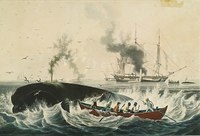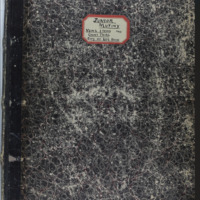Introduction - Whaling and Mutiny
Whaling, or hunting whales for their oil, blubber, and baleen has a wild and interesting history, sparking such greats of Literature as Herman Melleville’s Moby Dick; or The Whale. Just seven years after Melleville published his masterpiece, a whaling ship, the Junior, from the whaling Mecca of New Bedford, Massachusetts, left port to cruise the whaling grounds of the South Pacific.
Six months into the journey, the Junior had had no success, catching zero whales, but spirits seemed to be high enough given the situation. On the Christmas night, to the surprise of the Captain and mates of the ship, a violent mutiny occurred. This is the story we’ll be telling.
A mutiny is when some or all of a crew of a ship conspire to overthrow the authority of the captain. Causes of unrest and work stoppages on ships (which could lead to mutinies) include poor or strange working conditions, excessive punishment, poor food, or the condition of the vessel.
The mutiny on the Junior in 1857 is not a particularly well known story. Aside from in a small Australian museum and an article in the Martha's Vineyard Times, there is not much information available on the internet about this event, nor are there any books about it, except for one. It is not an academic book nor a dramatized recount, but a scrapbook. This scrapbook contains years’ worth of clippings from newspapers pertaining to the story as it happened, offering a glimpse at public perception and appetite of and for the story of mutiny. The scrapbook also contains handwritten copies of the actual ship's logbook. This scrapbook is a fantastic collection of information about an event which otherwise may have been forgotten to history.
Anchors Aweigh, batten down the hatches, hop on board as we sail through this riveting tale of violence, mutiny, and justice on the high seas.

